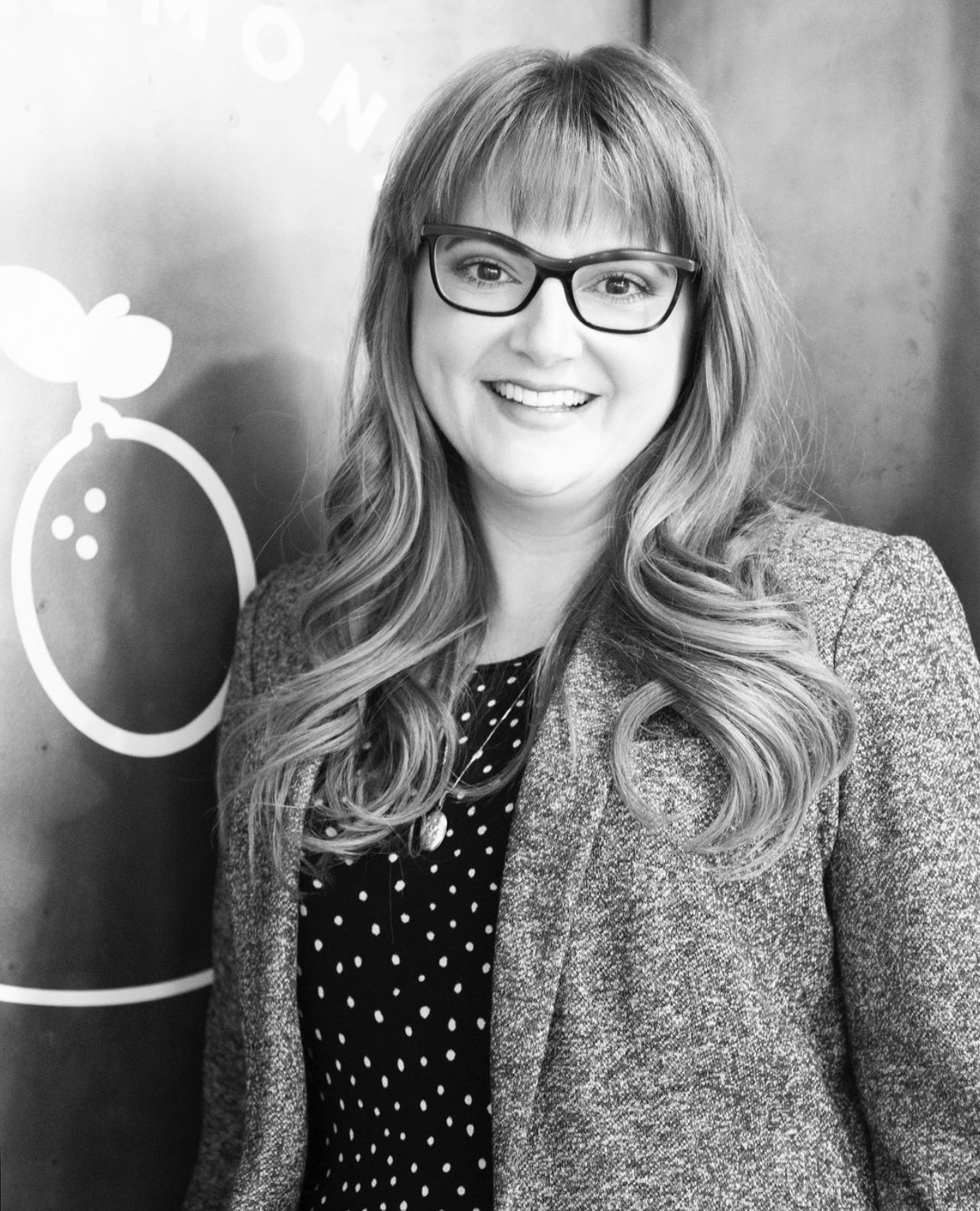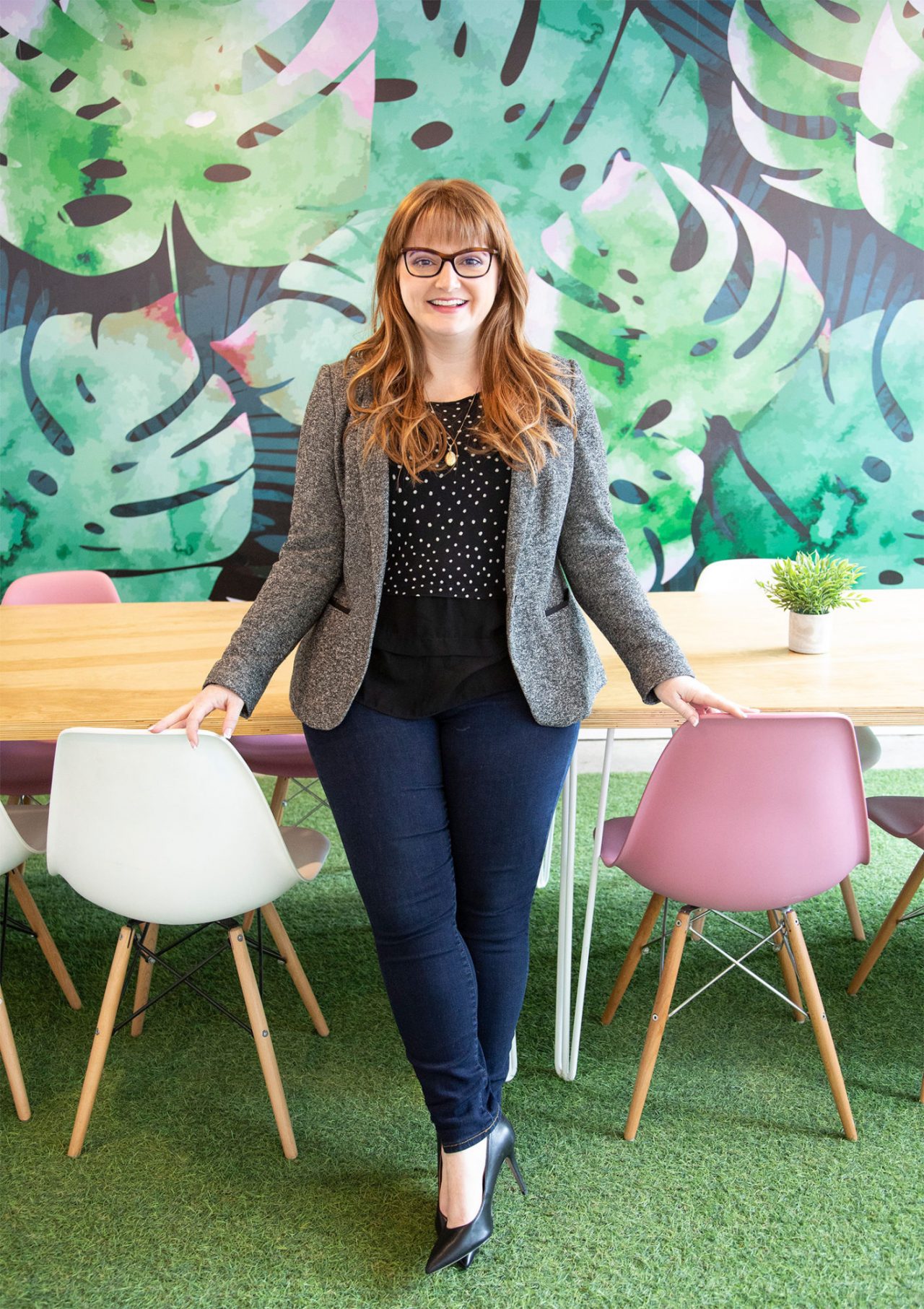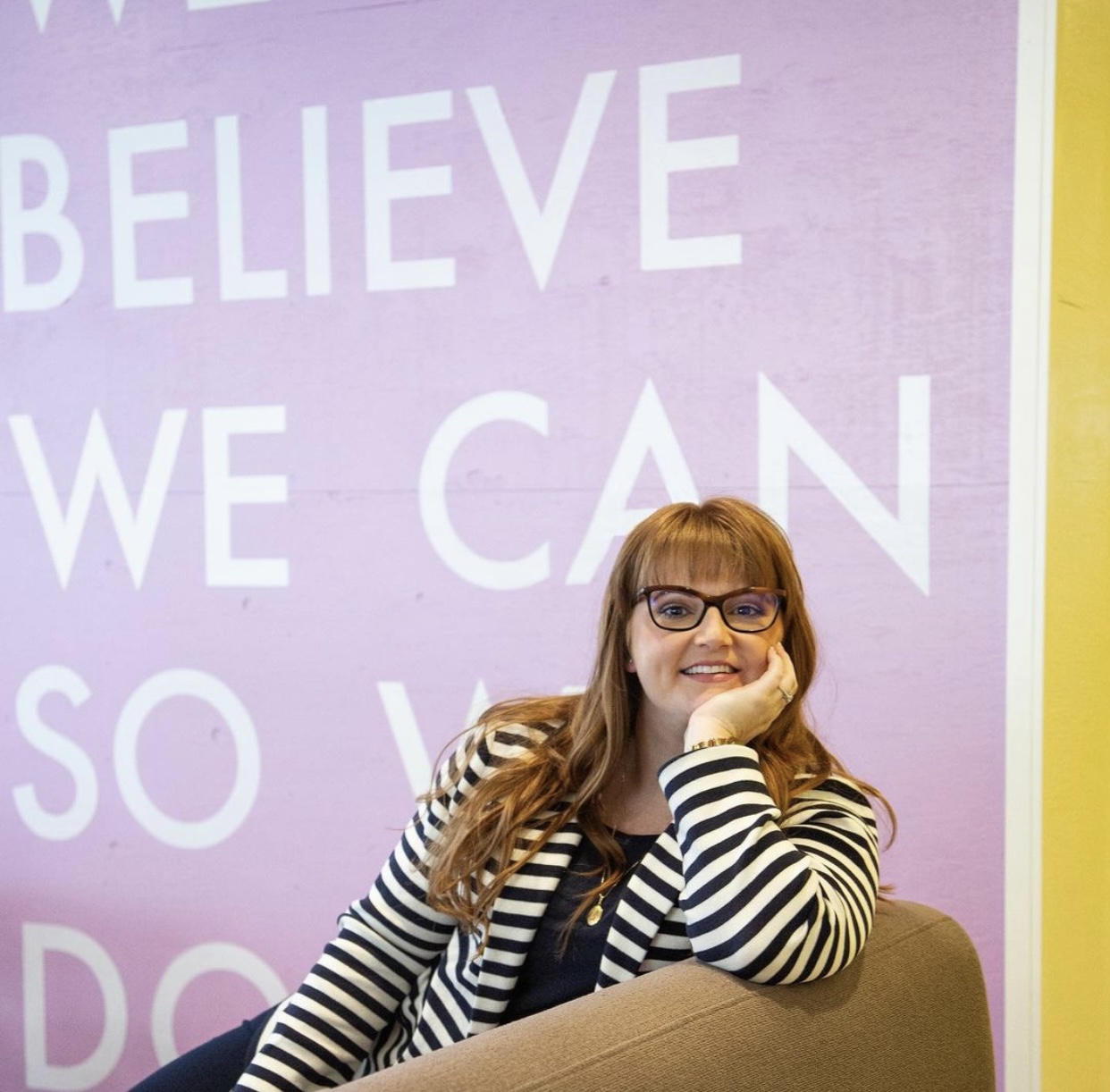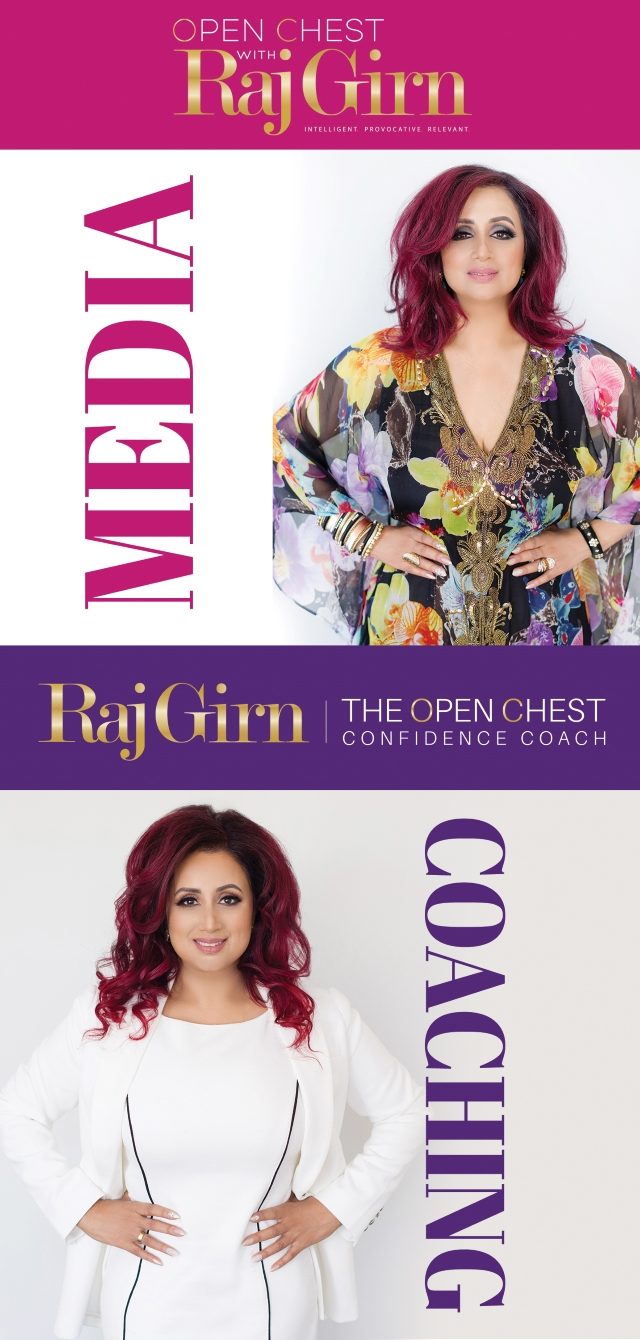In this episode. Raj has a discussion with CEO and Founder of ThinkHatch, Emily Foucault on the ‘need to knows’ about start up culture (the things that they don’t tell you that you have to have in place in order to set yourself up for success). The state of investing in 2020 and what the pundits are saying about 2021. Women vs men led companies as investment opportunities (the stats, facts, and her opinion on the confidence gap). If you are a startup, thinking about it, an investor, or just interested in it all, this episode is for you! And please let people in your networks know about this if you feel that it will add value to their lives!
LISTEN TO THE FULL INTERVIEW BELOW . . .
I am your host of Open Chest with Raj Girn, Raj Girn. The topic today is taking the guesswork out of start-up culture. What a year it’s been to have this conversation. What’s been happening with businesses regionally, nationally and internationally in such an unprecedented year is something I feel that I really wanted to kind of bring that conversation to the table. The two words that I feel that have been very indicative of what’s been going on with businesses around the world have been the word pivot, the word innovate times 10 to previous years. To break it all down, my guest today is the Founder and CEO of ThinkHatch, Emily Foucault. I’m super happy that I get to share her wealth of experience and wisdom with you all today. Please welcome the fabulous Emily.
Raj, thank you so much for having me today. I’m really looking forward to this conversation.
So am I. And I’m just loving that Christmas tree in the background, girlfriend. I mean, I need to put my tree up this weekend. You have just put it out there for me. And you know what it is? It’s like, you know, we need some inspiration, some motivation to kind of get us through the rest of the year. What better time to have this discussion about how do we kind of navigate the parameters and what’s been going on out there in the start-up world and business world and entrepreneurship? So, before we get into it, let me tell our audience a bit about your professional career just so that they can get a bit of understanding as to why I felt that you were the perfect person to have this discussion with. So, without further ado, guys, Emily is a well-rounded marketer with many years of experience behind her in this arena, having worked at some of the largest global marketing, media and strategic agencies like Mediacom, Hill & Knowlton and Rosetta Interactive.
She is both a thought leader and an active participant in many businesses and not for profit enterprises in various capacities. Emily has carved out the perfect position for herself, where she provides a service, where her marketing expertise meets her love and work with entrepreneurs and in the entrepreneurial arena. We’re going to get to hear a little bit more about that. Emily knows that every business has a story to tell, or at least if it doesn’t tell the story, she knows how to get that translated over into the marketplace so that it converts and gives results for that specific type of company, what they’re looking to accomplish with the community and ecosystem that they’re looking to build around them. She believes you can’t look from outside of the box when you’re in a box. So, she gives the outside perspective that every business with a dream and a vision needs. And as an entrepreneur myself, I can absolutely attest to the fact that if you don’t have that voice outside of your own perspective and the box that you create for yourself because you live in that box when you’re an entrepreneur, it can be a very, very difficult place to navigate what’s right for your business. This is kind of where Emily and her company come into play.

Clients recognize that Emily genuinely wants their business to succeed, and she works tirelessly to make it happen through her company ThinkHatch, which provides fractional business services and builds diverse strategies for start-ups that are ready to make an impact in their industry and on the world. In addition to this, she is wildly passionate about giving back to the community. She does various different things within the community. She is a supporter of CAMH, the Centre for Addiction and Mental Health, the Founder of the charity campaign hashtag Help Our Pets TO. And that’s actually how we kind of met each other, walking our dogs in an area of the city that we both lived in. She’s also a mentor for the Tease Tea Founders Fund as a judge for the Canada Innovation and Enterprise Awards. Emily’s accomplishments have been recognized by Start-up Canada, Notable Life and our women of influence, as well as having been featured on various publications and media with her real house of expertise, which is very varied. We’re going to learn about that right now. Please welcome again my girlfriend, Emily Foucault. Girl, you have no idea how excited I am to have this conversation with you. I get to kind of pick your brain for an hour and everybody out there gets to actually get that wealth of wisdom, especially with the year that we’ve had and especially since we’re rounding off a calendar year and getting ready to kind of understand what our plans and our visions of motivations, our intentions and our goals need to be for 2021 so that we can kind of navigate a lot of what’s been happening in our world this year. So, let’s dig in.
Sounds great. Thank you for the introduction, Raj.
HOW HER JOURNEY STARTED. . .
Of course, sweetheart. I’m a firm believer that the greatest value a person can bring to a start-up ecosystem is their experience, their belief system and their wealth of knowledge, because no two start-ups are the same. So, having kind of diverse, varied understanding of what business means, I feel is really a key component to being able to really advise and strategize for various different types of stages that start-ups are in. So, to set the scene. Let’s delve into your professional background first. Emily, tell our community here, what was the world like for you, professionally speaking, before you decided to found ThinkHatch. Take us through that journey.
Yeah. I will say my journey that I’m going to share with you is definitely not unique to me. A lot of other people within the marketing industry experience a lot of what I went through. On the flip side, there’s also very positive experiences of going through the journey at multiple global agencies. So, let me kind of take you back. And as you say, I mean, I founded ThinkHatch three years ago, but it’s really the accumulative years of experience that I really bring to ThinkHatch that has allowed me to kind of support other start-ups. So, going back and kind of starting at the early stages of my career. I had worked in the marketing and media and digital agency worlds for about 12 years. And as you mentioned, I had worked at some of the leading global agencies like Hill & Knowlton, which is a PR firm, Mediacom, which is the leader in global media buying, Rosetta Interactive, which is a leading digital agency down in the US. And I held various roles, a lot of which kind of focused on marketing a new business for the agencies, for the Canadian division.
That experience over the 12 years, quite honestly, led me to a burnout and also a mental health crisis. So, to give context and background, I’ve always struggled with mental health. However, it was the compounding effects of the demands and the timelines within the industry that really led to the burnout and the mental health crisis. So about five years ago, I took about a year and a half off to get myself mentally healthy and to focus on what I was going to do next. And it was at that time that I started to consult for high potential growth start-up. And I was one of seven partners leading the strategy and marketing for this global organization. It was at that time when I was kind of getting my feet back into to working after I was feeling better and mentally fit. I really realized at that time that without question, my marketing sales strategy experience was absolutely my skill set. But I was never going to work at another agency again. I took the opportunity of working with the start-up to identify that start-ups really need access to senior leaders and experienced professionals at the infancy stage of building their business when it is so crucial and necessary for the foundational building of any start-up.
That’s when I decided that with my experience and with the opportunity within the start-up landscape that I would launch ThinkHatch and really put people first and not just lip service. I didn’t want to create another agency. I didn’t want to create a consultancy firm but I knew that if the agency model didn’t work for me and was broken, that I had a real opportunity to change the way that we work. And so, I built ThinkHatch. You can almost think of us as a consultancy firm, marketing agency, all tied together and over the three years we’ve really evolved into having the two divisions to our business. So, the ‘Think’ division is really where we look at the strategy and consulting side of the business, and that’s where we work with start-ups to identify their monetization strategy and their operational needs. And then looking at how do we define a growth marketing strategy. We build the business model and the plan and it’s at that point we’re able to see what level of investment will the client actually require in order to make the plan that we set forward come to fruition. At that point, we often support clients with securing and seeking investment. Then at that point, once we know and have defined the plan, that’s where they hop over to our ‘Hatch’ division, which is more of our tactical marketing execution. That’s where we support our clients with executing the tactical marketing go to market strategy.
So, in-house, we support clients with public relations, paid advertising, social media management, branding elements. That’s really on the ‘Hatch’ side in the tactical marketing. So, that’s really kind of all of the accumulated years of experience of working at these large agencies. I was able to see what processes really worked and how I could leverage those and creating kind of that foundational and agency quality work, but at a fraction of the cost and with mentally fit team members. We’re a collective group of very experienced senior leaders, all of us, our founders. And we come together and it’s like working with friends. And quite honestly, I think that’s how business should be.
Right. You know, it’s really interesting that you share your story with so much transparency and honesty. And it’s a testament, I feel, to kind of the ecosystem you’ve created at ThinkHatch as well. What went wrong in the corporate sector, you know, being that you experienced that environment and the people around you and whatever it was that you felt wasn’t working is what you kind of made sure that ThinkHatch was ready to be able to take on the true value system that was missing in that corporate arena. Can you give us a bit of an idea of maybe one or two of those things, like what wasn’t working in that corporate environment that you felt you were able to bring to ThinkHatch you felt you had to create your own ecosystem to be able to deliver the type of service that you wanted to deliver?
Absolutely. Quite honestly, there’s a lot of things that are different and there’s a few things that are similar. And I would say what is similar is the process, because that does allow us to output the quality of work of the standard of an agency. How we do that is we have our team specialized in their area of focus and we communicate seamlessly across all the various tactics so that, again, we can bring that senior leadership insight and years of experience and really provide that kind of high-level quality of support. The things that are very different are in the corporate world and what I saw was money always talks and we know that.
But with that comes a lot of dictation and direction from clients and not always our clients’ values aligned to the company or in our case, ThinkHatch. So, what we do is we typically on board a client on a one-time project basis so we can test the relationship. Not all relationships are meant to be in life and in business. I think a lot of what we do is we want to work with friends, and we want to work with ethical companies, and we want to work with companies that have a lot of long-term potential and where we can see the growth. And so if, for example, the working relationship is not one that fits, we also have an opportunity to resign the business with a client just like they would with us.

Right. So, it’s like a two-way relationship, which is very different from the corporate enterprise. So, I can understand this, and we can kind of distill this down to people that haven’t experienced both those environments, speaking about corporate and entrepreneur environments. It’s just kind of the whole idea that money does talk in the corporate sense. What the client wants, irrespective of what may be right for them, tends to kind of jump the gamut in terms of priorities in order for them to kind of secure a long-term relationship with these clients. That’s something I feel that is not where you want to go. You want to be able to do what is right for the company and being able to have a two-way relationship where either side can mutually agree to be together or either side can decide that this isn’t working for me.
That’s a really, really interesting way to kind of do business to say to your clients that, well, you also have to, quote unquote, be interviewed by us as well. As you interview us, we are interviewing you because, you know, bringing you into our ecosystem needs to also make sense to not compromising our value system. So, let’s talk a little bit about the value system at ThinkHatch. Like, what are some of the things that people need to know about? Like if there’s someone out there that really needs to figure out what they need to do with their strategy for starting up a new enterprise, or maybe they’re at a stage where they’re kind of stagnant and they don’t know how to kind of take that next positive move forward. What are some of the things that you could provide in your ecosystem that could be of value to them, for them to maybe want to have that conversation with you?
Yeah, absolutely. And it really comes down to almost the needs to know of a start-up and really kind of what are some of those pieces of building a business. There’s lots of different elements to think about. And maybe today I want to highlight maybe three topics within that. Looking at the business foundation and what kind of resources and tools are out there to support and then also what resources are available in the start-up ecosystem.
WHAT IS A START-UP?
Before you begin, let’s preface that, Emily, with anyone that’s uninitiated about the start-up world. Can you maybe start by giving a definition of what it means to be a start-up? Like it’s such a pop, culturally heavy word. When I think about the word pop culture, I think about propaganda culture. There’s so much out there that you don’t really know what’s right from wrong. So, can you maybe start this part of our conversation with defining what start-up actually is?
Yeah, and it’s very interesting because at what point are you not a start-up and you’re a small business sectors, all of these, as you say, kind of trendy terms that are out there and what does it mean. When I think of a start-up, I think of an idea that has potential for massive growth in scale. I don’t think of a start-up as somebody who is a freelancer that is has an area of specialty in focus and wants to take on a certain amount of clients, but they never want to scale beyond that. That, to me, is not a start-up. And again, there are lots of different ways to interpret and define what a start-up is. But to me, again, when I think of a start-up, it it’s what is the long term high potential growth of that? And do they have the capacity to be able to scale and are they thinking big? So, that’s when I think of the start-up. It’s not starting a company to serve a purpose of the employee that’s starting or the person that is starting the company. They really need to see the vision of putting together a team and a culture and a top-quality service or product that has the capacity to grow and scale.
Right. I love that. I mean, there it is. There’s a difference between, you know, a business enterprise and an enterprise that has the capacity to scale large. So, that really is kind of defining the difference between having like a local business, which is absolutely, completely wonderful, or having the opportunity to take your enterprise and grow it large and be able to serve maybe a global audience with what you’re doing. So, I love that. Let’s go back now to the three elements that you were going to talk about now that we’ve kind of initiated those who don’t really know what it means to be a start-up.
Absolutely. Yeah, so talking about that first bucket and the business foundation, to me, if you’re thinking of starting a start-up with that long-term potential and the scalability, potentially globally, the foundational elements of building a start-up or a brand or a company are critical. I see this often where start-ups will come to us and they have tried things, hasn’t worked, probably invested money unnecessarily. And then they come to us and we have conversations and we look at what is your plan, what is the foundational elements that you have built and they’re not there. That is usually the case. When I think about it, I think that’s such a simple and first step is you’re going to look at how am I going to plan this business? What is the strategy I’m really looking at? What is the long-term product market fit looking at? Is there even a need in the market for this?
So, looking at it from that perspective, looking at it from value, what value are you providing to your audience and your customers and not just in terms of monetary value, but value that is different from a potential competitor that is already in existence? Which almost leads me to talk about the differentiator in building a start-up. When I take it back to ThinkHatch, our differentiator is that I really do want people to be mentally fit because that’s how we get the best results from our people and for our clients. So, really looking at how are you different? And in 2020, with the vast amount of start-ups that are popping up at an exponential rate like we’ve never seen, it’s a crowded space. So, being different and being able to communicate how you’re different is so foundationally important. Talking about that market fit and again, ensuring that there is a market fit, which leads me to always support clients with market research and really talking to the audience that you will potentially be communicating and servicing, making sure that you understand what it is that they need.
So, really kind of looking at those foundational elements of who are we? How are we different? What value are we providing? And really, again, diving into the audience in the market and really understanding what it is that you want to build. Again, a lot of founders look at it as they think they have an idea and they’re going to service something that they have had challenges with and they want to try and implement something to service their own need, but validating that within the market is just as important before kind of building that that start-up.
Right. Do you feel that is the fundamental mistake that a lot of founders make because they just don’t do the due diligence in advance of starting the company? We know how CEOs are, right? I mean, you’re one, I’m one, we understand how we think we have this vision, this idea which normally comes some kind of this creative space or it comes from a personal experience or an experience with other people where we find that there’s a hole in the market is a lacking. We think just because there’s a lacking that, you know, if we put something out there that it will fill it. But there’s so much more to that. This is all of this pre due diligence to actually understand and define the marketplace. What are the things that are missing and who’s looking for them?
Absolutely. And also, what is the size of that opportunity too, right? We work with a lot of investors and I will say the amount of times that they have seen pitches or been approached and some of those foundational elements in terms of market research and product market fit and how are you going to be different and the value? Those things just have never been done. Sometimes when founders are going to approach investors and it’s such a missed opportunity for the founder and it’s also real pain for the investors. So, I would say, like, again, looking at that foundational element is critical. When you push, go on kind of building the elements of the start-up, you really need to make sure that those foundational pieces are defined because it will essentially put you on a long-term path and a vision.
That’s why we really think strategy is so important, because with a strategy, you can think big and you can plan long term whether that be a year or three years, five years, and then that strategy, you’re able to break it down into micro steps and milestones. If you’re constantly executing and putting one foot in front of the other, your long-term plan will come to fruition in time. Everything takes time. So, the more upfront planning and foundational building that you do, the easier it is to make those decisions along the way to make sure that they’re aligned to your long-term vision. Again, going back to what we see a lot is founders have started something, tried something. It hasn’t worked. They come to us. We want to look at what their strategy is and how they’ve built it. And they would say we either don’t have it, we haven’t invested the time or the money.
But when you look at the time and money they’ve spent until that initial conversation with us, that could have been eliminated had we taken that time. So, a lot of what we do as well is end up with that strategy in place. We’re saving time and cost down the road, even though it is kind of a hefty investment up front. It’s needed. So, as founders and start-ups are kind of going through this journey. It’s really a combination of planning, implementing, learning, iterating and repeating that process a million times over. Each step of that will help start-ups to scale.
WHEN SHOULD A START-UP REACH OUT TO YOUR COMPANY?
So, at what point should a start-up be knocking on the door of a company like yours?
Yeah, it’s a good question. And this is really almost talking about like some of the resources, which is that second book that I want to talk about. And so really when they would come to us is typically, they have an idea. They have probably gone through an accelerator program, which there are many out there and available depending on the industry and the service or product that the start-up is creating. And with that accelerator, they would have vast kind of connections to different mentors and investors. And really, the accelerators help to plan out the actual foundational pieces for the start-up that has the idea.

So, for those people who don’t know what an accelerator is and they have an idea and they just don’t know where to go, but maybe, perhaps they’re not quite ready for you. But you’ll tell us in a moment, obviously, at what point they should be coming to a company like yours. That preface of an accelerator, can you explain to people out there what that actually is? And you know why it’s important?
Sure. Yeah, it’s a good question. To be honest with you, a lot of founders don’t know that they exist, but they exist, and they exist heavily in various regions. And so essentially what an accelerator is, it can be a program that’s anywhere from three weeks to six months or even longer and kind of anything in between. They’re usually hosted by major organizations that want to get back to their communities. So like Google Accelerate has a program, the DMC at Mars Discovery and Innovation Labs, they have one. What happens in these accelerators is you are accepted into the program with a cohort of other founders. So, you’re able to network with other founders that are in a similar stage to you. Then you’re paired with various mentors in various industries and expertise.
So, typically there’s a marketing and strategic mentor, and I have been part of accelerators and have been a mentor. There’s marketing and strategy. There’s usually financial support, human resource and operational support. They’re usually mentors of leaders who have been kind of around and have experience and lend their tips and tricks, but also their wins and failures. That really helps to kind of support the founders and sometimes in accelerators at the end, there is typically a monetary prize that is won. So, I recently judged a program in Kitchener, Waterloo through Communitech, and it’s the first founders’ program. So, it’s mostly geared towards female entrepreneurs, and there was $100,000 and $10,000 prize, and that was funded by Google and there were two amazing founders that won.
They really helped them to put together the foundational elements and give them that boost of both time and expertise, but also the investment. And it gives them that kind of boost that they need. So, going back to when a good time for founders to connect and engage with us is when they have some of those foundational pieces in place, they may be revenue generating, definitely not profitable yet. And they really want to take their start-up and their idea to the next level. That’s where we really look at from a growth perspective, how are we going to take this idea that is validated and has a bit of traction in the market? And how are we going to take that to the next level? And that is typically where we come in. And then at that point, we build out a longer-term strategy, then further investment is required. We support clients with receiving that, and then we start to execute the plan that we actually set forward.
Perfect. So, there’s different levels of investment funding. Are there certain investment funding ranges that you guys work with clients on? Do you define it that way or is it dependent upon your wheelhouse of services at any point that at a start-up may be in? Just so that we can really hone in on who would be kind of the ideal client for your company.
Absolutely. And it’s a good question, because typically when clients are at that stage where they have gone through an accelerator or two or three, that is very common when you’re at a certain kind of opportunity for growth, that typically happens. And so I would say for fundraising and receiving investment, we typically are looking to support clients with an initial angel round of investment. So, an angel round of investment is anywhere between like a half a million to three million sort of. And you can almost get into like a seed round in and around there. So, we’re not at the level of the VC fund yet, which is kind of the top end of the investment chain, I would say.
But we essentially help the client to be able to get into that VC fund once they’ve shown the traction that we will help them to receive. So, we’re kind of in that bridging gap before they are revenue generating and scaling into other markets. We’re usually kind of testing, improving here, understanding with the long-term potential of globally scaling even. We typically work with the angels, but we also will help clients in securing and looking for either government grants or what we call institutional funding, which could be through the banks or the BDC that supports many entrepreneurs throughout Canada.
What we try and do is work with the founders to keep them as the sole owner and as long as possible so that they have the ability to scale on their own, get a higher level of investment from an angel at a lower equity. So long term, their cap table, which is their investment table, is as low as possible. So, we will definitely advise clients on when we think that right time is to bring in an investor but we absolutely kind of support clients in holding off until we can get some of those kinks worked out. So, again, they can get a higher level of investment at a lower equity because they would have been able to achieve more.
You just said something so important. Emily, you just said something that I think that a lot of people miss out on as founders. So, the point here is, is that giving up the minimum amount of equity, how do you accomplish that? And coming to a company like ThinkHatch, you guys have the ability and the resources, the experience to be able to figure out how to make that happen. And it’s different for every company. It kind of depends on where are they at when they come to you and what are they actually looking to accomplish within your wheelhouse, right?
Absolutely. And we even really look at the founder and what are their skills and expertise. So, I’ll give you a perfect example of myself. When I started ThinkHatch as a founder, one of the biggest things that we have to realize is that we are not experts in every area. As much as we can try and scale to a certain level, you need to outsource your weakest skill and your weakest link at the very beginning. And I get that. So really looking at and this is what we support clients with is, for example, if we have a client that’s really solid in its strategy and marketing and even the people side, but they may not have the manufacturing or the operational supply chain experience.
If they’re creating a product, that will be a massive piece of the puzzle. So, we would almost advise and encourage the client and a founder to look at either a co-founder or a part time resource that can support and that could be on kind of a retainer basis. There are still ways to get creative and not giving up equity too early until you see what it is that you need. But often it’s usually outsourcing your weakest skill first to make sure that you almost have that yin and yang balance and not expect yourself to do everything because as founders, we just can’t.
But we think we should know everything. That’s the big fallacy here, isn’t it?
Absolutely. And it goes back mental health too, if you don’t have the right team and the counter part with a different expertise and experience to your own, the team is absolutely mission critical. But a lot of the times what happens is there’s founder burnout because we try and do everything, and we try and be experts and we try and put on this brave face like we know what we’re doing. But being honest and real and thinking and saying out loud that you don’t have all of the skills is a better leader in my eyes than having somebody say I can do it all. And I know what I’m doing, and I’m experienced in all these areas. We see through that. The longevity of a founder who has that mentality is definitely a lot shorter than somebody who will tap into other expertise and networks and support.
MYTHS ABOUT START-UP CULTURE
Absolutely. I want to ask you, there’s so much information out there about start-up culture. What are maybe some of the myths? You know, like I’d love for you to myth bust, maybe a couple of the big ones.
Yeah, there’s a lot. I really do think there’s this myth about founders and start-ups. You can’t have this work life balance. You can. It comes back to mindset and really looking at working smart and not working hard. I think about some of the founders that we have worked with in the past and have chatted with. And they’ll say, like we need to stop glorifying this nonstop hustle, it doesn’t need to be. When somebody tells me, oh, I work all the time and I work evenings and weekends and they almost say it to impress you. I look at them and think to myself, you’re doing something critically wrong.

This is so fundamentally important because Emily, let’s admit it, you and I have been that entrepreneur and sometimes I have to admit in full transparency when I’ve got like a new project I’m launching like I am right now, I’m working morning, noon and night because again, this is another thing we do as founders when we’re launching something new, we feel that if our fingers aren’t in all the pies of the process that it’s just not going to go right. And that’s the single worst thing that you can do. Please talk to us.
I would say two things when I mentor entrepreneurs and it’s don’t get shiny object syndrome and I’ll talk about that. Then again, like just looking at not taking on too much and really identifying what is my goal for the next 30, 60, 90 days. How am I going to achieve that and then where does my focus need to be and at the same time assessing where is your time going? Typically, what happens is when you’re not letting go of a process, it’s a process that is broken, that puts that work back on the founder. The process is typically powered by your team. So, there’s usually a breakdown in the team and the process that makes the work go back to the founder.
But if you trust your team and you allow them to kind of run with things and have the authority and you really kind of align on the vision and the values, if you give them that autonomy to take on and run with things, you get more from people anyways. So, making sure that process is solid will absolutely kind of help the longevity of the founder. And then going back to your point about there’s so many things to be considering and what makes sense. And this is a ton of what I see as a founder with all of our clients. And I love you all. But you all know, you do it and they say it all the time and they will know this term. And it’s shiny object syndrome. They will come to me and they’ll say, Em I saw somebody posted on Instagram about this and this looks great. I think that looks great. And I’m glad you’re in the know and I’m glad you’re researching and I’m glad you want to see other perspectives. But let’s stop and think how does that one piece of information or trend align back to our overall strategy? Does it align? Is it relevant? Do our customers care or are we going to be driving the business forward and really looking at it from that strategic mindset of does this even make sense? Yeah, it could be all the hype and hoopla, but it doesn’t always make sense.
So, having that shiny object syndrome and seeing kind of what’s out there and trends are one of the killers of start-ups. It’s really, again, like staying focused, staying in your lane and going back to that strategy and that foundation that you built. And that’s inevitably what will help kind of drive that forward and maintain that level of work life balance that is mission critical. And then there’s other things too. Looking at what are some of the things that are redundancy that we can start to implement from a process or getting creative? There’s virtual assistant companies that exist where you can pull in resources, whether it be admin support or agreements and that sort of thing and outsourcing that we’re done redundancy of some of these tactical elements that need to get done to a team that can actually support on a bigger scale. So, that was one of the first things that I did with ThinkHatch back in 2017 is I had hired a virtual assistant and she has been a game changer and life changing for me. She’s still with me today and knows the business inside out and backwards. And she’s based over in the Philippines. I would say getting creative with how we bring on a team that makes sense for the long-term capacity and scale and growth of a business. So, get creative on how you can leverage different resources so that you can maintain that work life balance.
Absolutely. That kind of brings me to what we talked about off the top. We’re coming to the end of another year. It’s been an unprecedented year. For those who need to kind of figure out how to get themselves together and back in the game, because there have been a lot of businesses that have been stagnant, a lot of businesses, a lot of industries that have really seen the brunt of the shutdown of the global economy, which is the only way that I can describe what’s happened this year and all the reverberations that kind of come out of that all the way up to how you feel and value yourself as a person professionally. There’s so much that can be talked about. But to kind of hone it in, what are the pundits saying about how they should set themselves up for success next year based on kind of the fact that we’re still going to be going through this next year as well? Like, is there anything that you can tell people out there that they should be looking at in terms of, what we talked about at the beginning, pivoting innovation? Like what are your thoughts here?
Yeah, to be honest with you, as much as 2020 is one of the worst situations we’ve ever seen for start-ups and small businesses and founders. It also has given us an opportunity to think longer term and to think about future proofing companies in start-ups. Yeah, and we can look at that from multiple angles. And I would say looking at if you’re a retail space, how do we have an online channel to support that? That’s something that should be a basic now when we’re implementing and starting various start-ups and companies, is looking at multiple revenue streams and not just focusing on a potential one avenue and not so that if something like this happens, if it can happen once, it can happen again. And its impacted industries that we think may have been future proof when we look at like 2018, 2019, not knowing a pandemic would happen, we would have thought event space and event industry. We always need them.
They will never be impacted. And wow, did 2020 show us that it’s possible that there would be a disruption in that industry that I mean us as humans, we need one on one interaction and in-person events and so again, going back to that event space, if you’re creating kind of a community that is focused around events, how do we create an online community and an offline community as well as what are the multiple revenue streams there? So, looking at that, I think is one of the big things that we can do and looking at, again, not starting a start-up to start a start-up, looking at what is needed in this world. So, when we look at it, in Canada, our top three sectors of growth within start-ups is clean tech, which takes about 8 percent of the market. Life sciences, which is about 20 percent, and technology being that 45 percent. So, looking at the opportunity within those top sectors and looking at is there a start, a start-up product or service that resonates or is needed within those markets?
So, just kind of looking outside of some of these saturated markets would absolutely be necessary. And in terms of like the investment landscape right now within Canada and I’m going to talk specifically Ontario. So, when we look at Angel Investments, specifically in 2016, there was about four hundred and eighteen Angel Investments made 2017, about five hundred and five investments and in 2018, five hundred and eighty-three there’s growth there. It’s not exponential growth, but there’s definitely growth within our industry and so is cautiously optimistic as I am. And as much support as the government is providing to Canadian entrepreneurs, there is definitely opportunity there. And I think from a Canadian and a start-up landscape, there are actually a lot of positives, again, taken with that cautiously optimistic approach. I think there’s opportunity and that opportunity, again, comes back to the start-up culture in Canada is really planting its roots firmly. I even think a couple of years ago when I started ThinkHatch and some of my friends would look at me like I was crazy and had three heads and how are you starting your own business and what that takes? And now I think I have a couple friends within my circle that have now started as well, and it’s becoming more the norm.
So, a lot of that culture and the roots are happening in Canada. We’re seeing more co-working spaces to support founders and entrepreneurs. We’re seeing more accelerators. We’re seeing more grants available. So, I think all of that positivity is great for entrepreneurs and for Canadians and the Canadian landscape. And I think what’s also happening globally and with other markets and our neighbours to the south, I think a lot of the top talent that is typically in other areas of the world are starting to look at Canada, which is a massive opportunity for us. And that brings a lot of diversity from an investment standpoint. A lot of investors have their eyes now on Canada not to make quick investments by any means. The market is still volatile, but they definitely have our eye on us like they never had before.
THOUGHTS ON FEMALE FOUNDER VS MALE FOUNDERS
Can I ask you something regarding that? Maybe it’s not just kind of a geocentric question, but investment is still heavily done in male founded male led companies, so exponentially so even though we see out there in the media these fabulous stories of women led and founded companies getting massive amounts of investment. That story is an anomaly versus being what it looks like, that there’s a lot of it out there that statistically we still are very, very low on the totem pole there for out women out there. What would you say to them? Because I’m not a believer in you got to be better than the men and just that whole mentality, I just think you have to be the best you. So what are your thoughts around that uphill battle towards securing investment?
Yeah. And I’ll start by saying you’re right in terms of female founders and the funding that they do receive. And it really comes from a history in a perpetual kind of system that is broken and when you look at it, if you look at the VC funnel, the venture capital, which is kind of the top of the investment chain, when we look at that, in Canada, there’s 15 percent of partners within VC firms that are females. So, representation at the top is very low and it’s a cascading effect. So, until we actually change that norm and the females who are starting as angel investors and working their way up, that will take time. There’s another kind of stat that always is shocking to me and viewers can check it out. It’s a fund out in Calgary. It’s called The 51. They state that female founded companies only received four percent of venture capital. Even though women led companies outperform male founders by sixty three percent, they’re still only receiving four percent of venture capital.
That’s such a massive swearword is all I have to say. It’s so annoying why that hasn’t shifted. Why do you think that is? I mean, I understand the representation piece, but how do we get more representation? My logical mind not looking at gender per se, my logical mind as a businessperson would be that if the outperformance is here my money will go there. If the outperformance is here, I need more representation of that gender to explain to me and educate me and let me understand how I need to properly invest in these companies as the male that always sits at the ‘top of that totem pole.’

I think it’s a couple of things and I am definitely seeing opportunities for females to receive that investment. So, I think it comes from more female leaders within the industry being bold. I’ve quite honestly been in meetings where it’s still been all male and I can comfortably as a redhead, and I can be bold and that’s just who I am. And I sit there, and I will say, at what point are you hiring a female on your board? This is not okay. First, they look at me like I have three heads and how bold is this woman? But I say it. If we don’t talk about it, if we don’t call it out, if we don’t mention it and I’m not saying every founder go into a room and that’s how you start your conversation. No, that’s not what I’m saying. I’m saying more leaders just need to break down that barrier, have those difficult conversations to open up doors for future female founders. But a fundamental difference that I see working with and to be transparent and honest, I never built ThinkHatch with the intention of all of our clients would be female founders. But they are. And I love it. So, we just kind of naturally, that’s how we’ve built a company.
You’ve carved out a brilliant niche there.
Yeah. And it’s not to say we won’t deal with male founders by no means. We actually just last week on boarded a team that has a male founder.
Representation matters.
It does. Absolutely Raj. Because I have that perspective of dealing with a lot of female founders as well as male founders, there’s fundamental differences. Males are risk takers. Females are thoughtful. Females are cautious about what the future will hold. And so how that translates from an investment perspective is a lot of the times males will ask for larger funding rounds. And when they’re in the conversation, they never highlight risks, whereas females in an investment round go in asking for less. And then they say at the same time, and these are some of the challenges that we may overcome in the next X amount of months and years.
Because they highlight that the perception to the investors is that the founder is averse to risk and not confident and that’s not, in fact, the case. It’s just that we think different. We plan different. We worry about team differently. It’s very different, and so I think if female founders, that’s an opportunity for us to present differently to have that confidence. I think that is a fundamental difference when I see female founders pitching versus the male founders. And again, it often comes back to the investor seen it as a lack of confidence and a lack of being able to take risk and when in fact it’s the opposite of that. They’re transparent and they’re confident in their plan and a realist and think of what could actually happen. I think just refining the pitch when working with female or woman led companies, I think that’s an opportunity for us is just having that confidence.
HOW CAN START-UPS GET A HOLD OF THINKHATCH?
Brilliant. And, you know, I’m being told that we’ve got one-minute left to go. I cannot let you go without all of those people that came in a little later on in the conversation. How can they get a hold of you, a team member at ThinkHatch if they feel that, they need to kind of garner more information from you?
Absolutely. I always welcome a conversation. One of my biggest things for anyone that knows me, I choose collaboration over competition all day long. If there’s a connection I can make or a resource I can provide, I absolutely encourage people to reach out. So, I would say a starting point would be our website. So that’s ThinkHatch.ca and if they would like to send us an email [email protected] is the best place. I do welcome conversations or people, or a new founder is having a challenge and they want to bounce that idea off of somebody and want an unbiased opinion. I welcome those as much as possible. So please, if there’s any questions that people have that they want answers to, I would love to have those conversations, so please.
Folks, I have been speaking with the fabulous founder and CEO of ThinkHatch, Emily Foucault. Thank you so much, my darling. You are a wealth of wisdom. You know that we’ve got to do this again. There is so much that we need to talk about. I know that Instagram family, you’re going to be cutting off shortly. So, thank you so much for joining us and Facebook. Thank you, as always, for sticking around and being a part of just some really meaningful, insightful, important and valuable conversations. Thank you so much, Emily. And I look forward to the next time that you and I together.
Likewise. Thank you so much Raj for this opportunity. And thank you to the viewers. Thank you.




